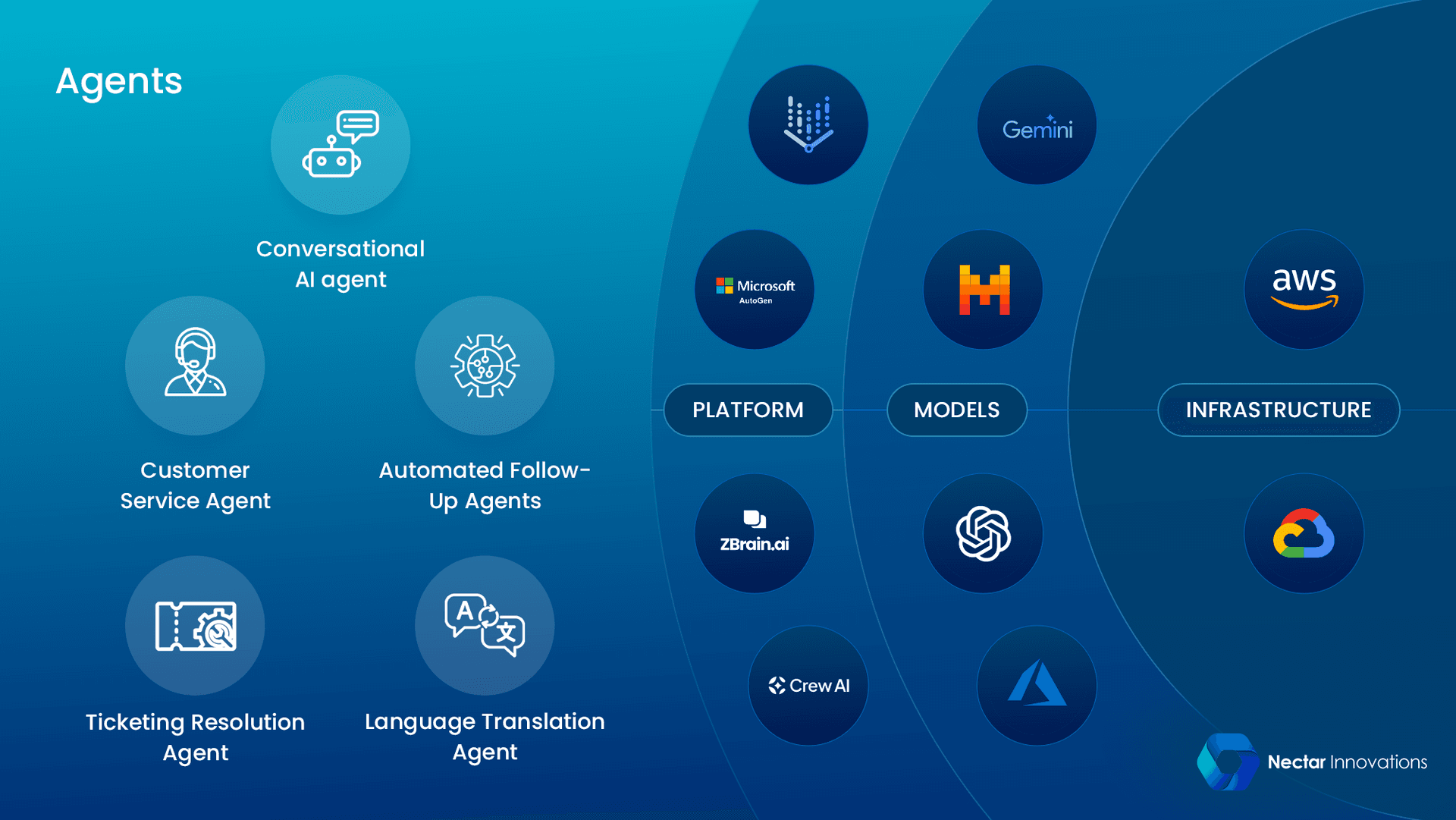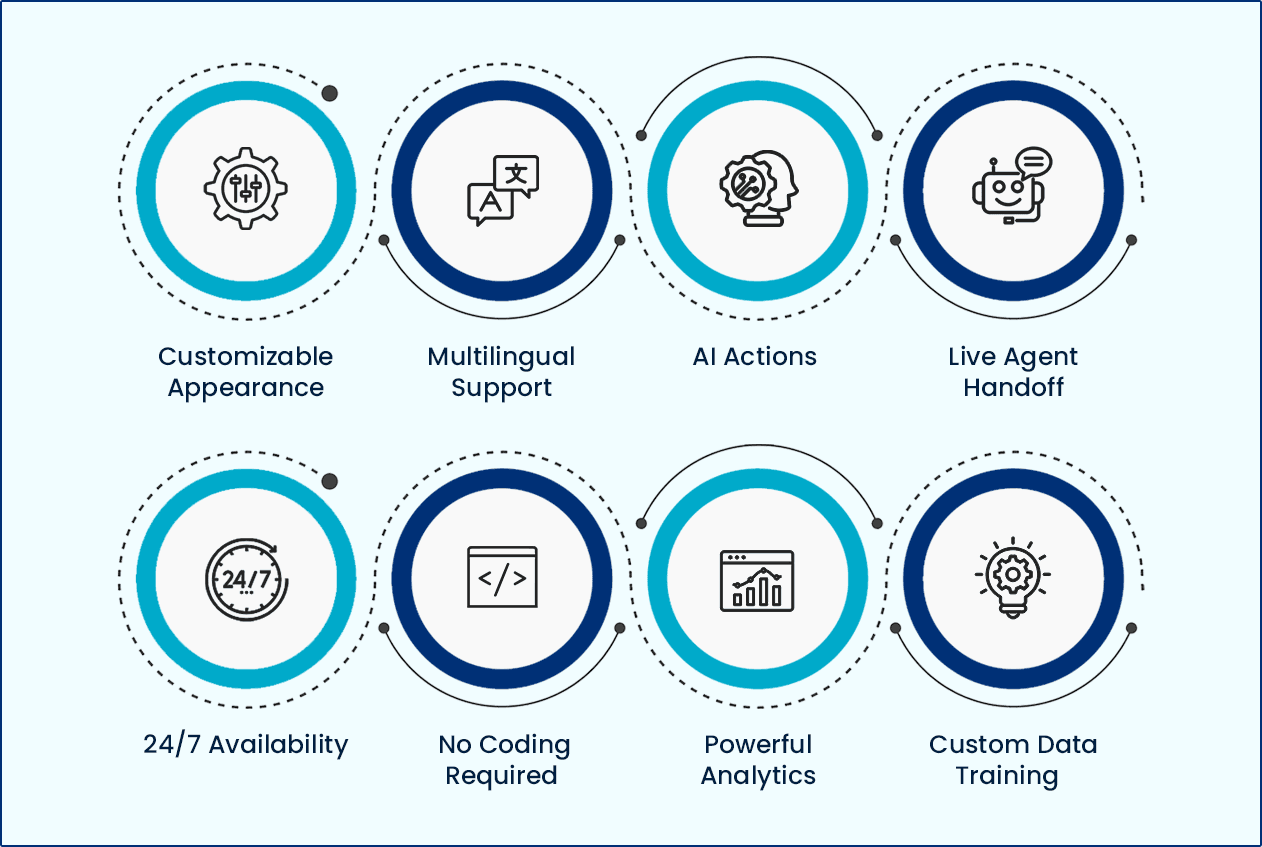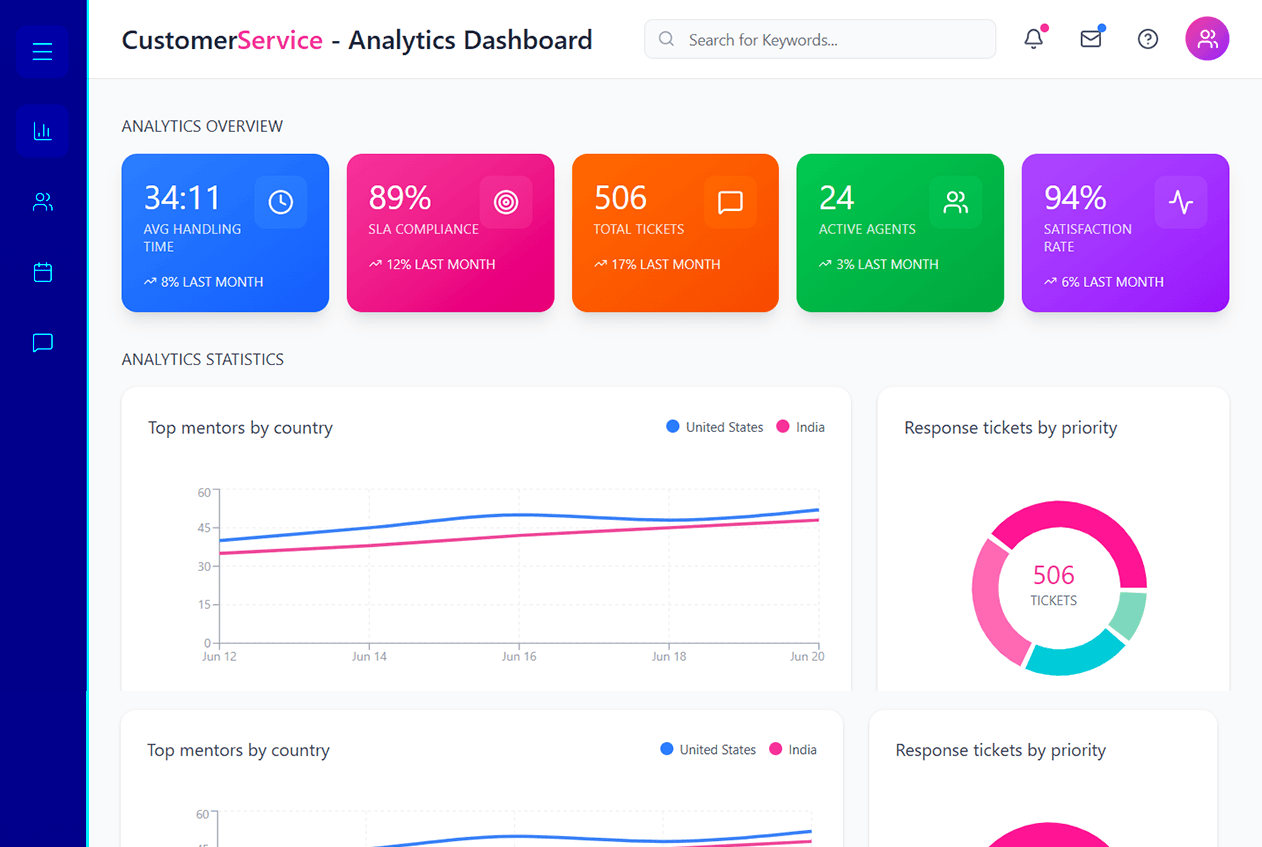Companies handle a staggering 265 billion customer support requests each year, which creates major operational hurdles and expenses. AI-powered customer service solutions now reshape the scene of handling such massive volumes. Latest research reveals AI agents can automate up to 80% of customer interactions, which lets human agents tackle more complex issues.
Companies adopt AI customer support faster than ever. Gartner predicts chatbots will become the main customer service channel for 25% of companies by 2027. About 92% of companies have already added AI in some form in 2025. The results are impressive - Vodafone cut its cost-per-chat by 70% while Motel Rocks saw a 206% jump in self-service rates through AI automation."
This piece shows how AI agents revolutionize customer support operations. We'll look at eight key use cases, efficiency gains, customer experience benefits, and implementation best practices. Whether you plan your first AI rollout or want to improve existing systems, you'll find how AI-based customer support can enhance your service delivery and cut costs substantially.
Top 8 Use Cases of AI Agents in Customer Support

Businesses now use AI agents in various support functions to make operations more efficient. AI reshapes how companies deliver customer service and run their operations.
- AI chatbots for 24/7 query handling
AI-powered chatbots help customers around the clock and handle many queries at once without extra staff. These smart systems work non-stop to help customers immediately, even during holidays. Companies that use AI chatbots can handle more than 5 million customer requests each year, which reduces work for human agents.
- Conversational AI for natural interactions
Modern conversational AI goes beyond simple chatbots by using natural language processing (NLP) and machine learning to understand customers and give tailored responses. The technology learns from billions of conversations to understand questions in context. Companies with mature AI systems report 17% higher customer satisfaction than those without conversational AI.
- Agent assist tools for faster resolutions
Agent assist technologies help service representatives with guidance during customer interactions. These tools suggest responses, share knowledge base information, and guide agents step by step. Companies using these solutions handle 28% more conversations and report 15% higher agent satisfaction.
- Sentiment analysis for real-time prioritization
AI systems analyze customer messages to detect emotions, frustration, and satisfaction levels. These tools study customer feedback across channels to handle urgent cases first. Companies that use sentiment analysis see better results, with 30% fewer escalations within six months.
- Predictive analytics for churn prevention
AI algorithms spot patterns in customer behavior to find potential churners early. The system looks at purchase history, frequency, feedback, and other signals to spot warning signs. Companies using predictive churn prevention have cut customer churn by 25%.
- AI ticket routing based on urgency and complexity
Smart ticket routing uses AI to sort, prioritize, and send support requests to the right teams. AI systems understand context through NLP, unlike simple keyword routing. This approach cuts cost per contact by 23.5% and boosts yearly revenue by 4%.
- Email response automation with generative AI
Generative AI makes email management better by reading incoming messages and writing personalized responses. It pulls out key information, understands context, and writes human-like replies based on available knowledge. This automation helps companies save 30 seconds per case.
- Knowledge base optimization using AI insights
AI makes knowledge bases better by finding content gaps, spotting outdated information, and suggesting new topics based on what customers ask. The system studies search patterns and interaction data to make information easier to find. Companies with AI-optimized knowledge bases help customers find answers on their own, with some reporting 206% more self-service use.
How AI Agents Reduce Support Load and Improve Efficiency

Support teams don't deal very well with the growing number of tickets they receive. AI agents help tackle this challenge by creating efficient workflows that enhance operations in several important areas.
- Automated triage and ticket deflection
AI uses Natural Language Processing technologies to read tickets, understand their meaning, assess urgency, and route requests to the right teams automatically. The intelligent triage system can cut ticket handling time by 30-60 seconds for each case. This system also creates a consistent way to handle requests and improves operational coherence.
Ticket deflection solves customer problems before they become actual tickets. Studies show that more than 70% of support tickets are questions teams have answered before. AI-powered solutions can prevent up to 40% of new tickets through self-service options like knowledge bases and chatbots.
- Reducing ticket collision with unified agent dashboards
Ticket collisions happen when multiple agents work on the same request without knowing it. AI systems use up-to-the-minute data analysis to update ticket status and prevent these errors. The team's unified dashboards show all ongoing support activities clearly and eliminate duplicate work.
- Minimizing average handle time through AI assist
Conversational intelligence software takes care of routine tasks like data entry and note-taking. Teams using automated call summaries have reduced their average handle time by up to 33%.
Want to see how Nectar Innovations can help your team build smarter with AI? Schedule a call today.
Features like up-to-the-minute guidance and knowledge retrieval help teams solve problems faster without sacrificing quality.
Customer Experience Gains from AI-Powered Support

AI-powered support significantly improves customer experience and operational efficiency. Companies that use AI in their customer service have seen remarkable results.
- Tailored responses at scale using CRM data
AI systems work with CRM platforms to create personalized interactions based on customer information. Research shows 73% of customers want companies to understand their unique needs. Companies that use AI can build stronger customer relationships by analyzing customer's past interactions and priorities.
- Faster first response time and resolution rates
The numbers show dramatic improvements. AI-powered support platforms help companies cut first response time from 15 minutes to 23 seconds—97% faster. Resolution times have dropped by 40-60%. Customers get answers almost right away instead of waiting, which makes their experience much better.
- Better CSAT through proactive service delivery
AI helps companies move from fixing problems to preventing them. Customer service teams using AI report:
- 20% higher customer satisfaction scores
- 17% better satisfaction rates for experienced AI users
- 1% boost in customer satisfaction for each percent increase in First Call Resolution
Smart analytics help businesses spot patterns and catch problems before customers do. This changes the approach from "How can we fix it?" to "How can we prevent it?".
Best Practices for Deploying AI in Customer Service

Smart AI customer service solutions need proper planning and careful execution. Organizations make better decisions when they understand the differences between available technologies.
- Choosing between AI chatbots vs AI agents
Traditional chatbots use predefined rules and decision trees. They work well for simple questions and scenarios that need strict brand message control. AI agents that use large language models (LLMs) are better at grasping context, learning from interactions, and handling complex conversations. Many teams use both - chatbots for predictable scenarios and Fs when things get complicated.
- Training AI agents on brand tone and policies
Quality matters more than quantity when training AI systems. Organizations should take these steps:
- Remove outdated or redundant information
- Standardize data formats across sources
- Use diverse training data that matches customer demographics
Note that "more curated content equals better answers" works better than just adding more content.
- Integrating AI with existing helpdesk and CRM tools
AI works best when it connects smoothly with your CRM platforms and helpdesk software. Want to see how Nectar Innovations can help your team build smarter with AI? Schedule a call today. The right solutions should offer customization options that grow with your business.
- Security and compliance considerations for AI support
Teams must use reliable security measures like end-to-end encryption, regular security audits, and proper authentication. Following regulations like GDPR, CCPA, and HIPAA protects sensitive customer information.
Conclusion
AI agents have changed how businesses handle customer support. These smart tools improve service quality and cut down operational costs. Our research shows these systems can cut ticket volumes by half and boost customer satisfaction scores by 40%.
The eight use cases we covered show how versatile AI can be in different support roles. Smart chatbots work around the clock and handle millions of questions each year. Predictive analytics help prevent customers from leaving. Companies that use these tools see amazing results. Self-service rates have jumped by 206%, and cost-per-chat has dropped by 70%.
AI-powered support systems make operations run smoother through automated sorting, ticket reduction, and faster handling. Many businesses now solve customer problems in seconds instead of minutes. Some have even cut their first response times by 97%.
Customer experience gets better with this new technology. AI helps create personalized service for many users at once, solves problems faster, and spots issues before they grow. Companies using AI in their customer service see up to 20% higher CSAT scores.
Making AI work well needs careful planning. Companies should think over what they need before picking between chatbots and AI agents. They must train their systems to match their brand's voice and merge them with existing tools. Strong security measures must stay in place throughout.
AI technology keeps getting better, and it will play a bigger role in customer support. Smart companies that use these solutions now will be ready to meet customer needs while handling support volumes better. The best customer service will come from companies that balance human skills with AI capabilities. This mix creates experiences that make customers happy and operations smooth.
Key Takeaways
AI agents are revolutionizing customer support by dramatically reducing operational costs while enhancing service quality, delivering measurable improvements across all key performance metrics.
- AI can reduce support ticket volume by 50% and boost customer satisfaction by 40% through automated handling of routine inquiries and faster resolution times.
- Eight core AI applications transform support operations: 24/7 chatbots, conversational AI, agent assist tools, sentiment analysis, predictive analytics, smart routing, email automation, and knowledge base optimization.
- Operational efficiency gains are substantial: AI deflects up to 40% of tickets, reduces first response time by 97% (from 15 minutes to 23 seconds), and cuts average handle time by 30-60 seconds per case.
- Customer experience improves through personalization at scale: AI integrates with CRM data to deliver tailored responses, enabling proactive service delivery that prevents issues before customers notice them.
- Successful deployment requires strategic planning: Choose between chatbots vs AI agents based on complexity needs, train systems on brand voice, ensure seamless integration with existing tools, and maintain robust security compliance.
The transformation from reactive to proactive customer service through AI represents a fundamental shift in how businesses approach customer relationships, making it essential for companies to embrace these technologies to remain competitive in today's service landscape.





